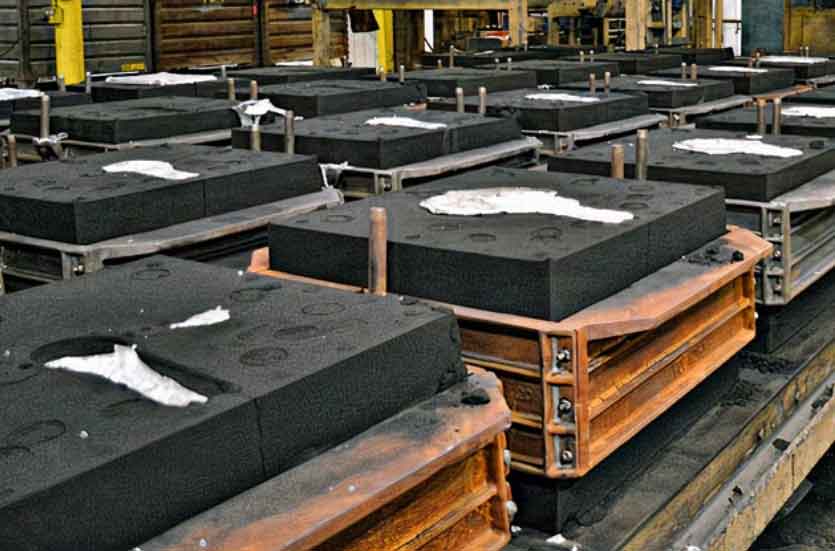
Addressing environmental concerns in foundries is crucial for sustainable and eco-friendly manufacturing practices. Resin sand casting offers several eco-friendly aspects that contribute to reducing the environmental impact of the casting process. Here are some ways in which resin sand casting promotes environmentally conscious foundry practices:
1. Recyclability:
Resin sand used in casting molds can be reclaimed and reused, reducing the amount of waste generated during the casting process. The sand can be rejuvenated and mixed with new sand and resin, minimizing the need for new raw materials and conserving natural resources.
2. Reduced Emissions:
Resin sand casting produces lower emissions compared to other molding processes. The use of water-based resins further decreases the emission of harmful fumes, making it a cleaner and more environmentally friendly option.
3. Energy Efficiency:
The curing process in resin sand casting requires less energy compared to other mold types, such as green sand molds. The reduced energy consumption contributes to lower carbon footprints and more energy-efficient operations.
4. Sustainable Sand Management:
The process allows for efficient sand reclamation and recycling, reducing the demand for new sand. Proper sand management practices ensure that the sand is continuously reused, minimizing the impact on natural sand resources.
5. Reduced Waste:
The design flexibility of resin sand casting reduces material waste, as the molds can be tailored to specific casting requirements. This leads to less material discarded as scrap, promoting a more sustainable manufacturing approach.
6. Lower Toxicity:
The use of water-based resins in resin sand casting results in a lower level of hazardous chemical emissions compared to solvent-based systems, contributing to a safer and healthier working environment.
7. Lean Manufacturing Practices:
Resin sand casting enables lean manufacturing practices, allowing for small batch production and reducing excess inventory. This results in a more efficient use of resources and minimizes waste.
8. Reduced Pattern Waste:
3D printing integration in resin sand casting reduces the waste associated with traditional pattern-making methods. Patterns can be directly 3D printed, reducing material consumption and minimizing waste generation.
9. Improved Environmental Compliance:
The eco-friendly aspects of resin sand casting contribute to better compliance with environmental regulations and standards, ensuring that the foundry operations align with sustainability goals.
10. Longer Mold Life:
Resin sand molds typically have a longer life compared to other mold types, reducing the frequency of mold replacements and the associated waste generation.
By embracing resin sand casting and adopting eco-friendly practices, foundries can make significant strides toward reducing their environmental impact and contributing to sustainable manufacturing processes. The ability to recycle and reuse materials, lower emissions, and minimize waste make resin sand casting a viable and environmentally responsible option in the metal casting industry.
